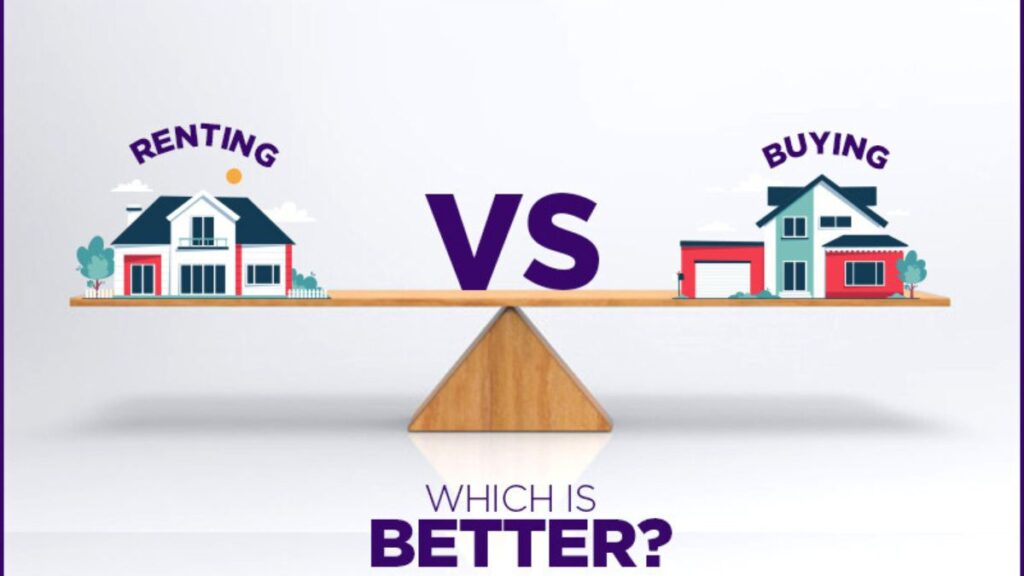As Dubai continues to evolve as a global hub for business and luxury living, the question of whether to rent or buy a property is one many residents and newcomers grapple with. With changes in visa policies, shifting market trends, and the rise of long-term residency options, 2025 presents a unique set of conditions that make the decision more nuanced than ever. Both Renting vs Buying in Dubai have their pros and cons. The right choice depends on personal goals, financial flexibility, and how long you plan to stay in the emirate. This article explores the pros and cons of both sides and helps you assess which move makes the most sense in today’s market.
Weighing Lifestyle Flexibility Against Long-Term Investment
For many, renting offers flexibility that buying simply can’t match. Tenants can upgrade, downgrade, or relocate with relative ease. This freedom suits Dubai’s highly mobile expat population, especially those working on short-term contracts or exploring new career opportunities.
In contrast, buying property provides long-term stability and an opportunity to build equity. With property prices stabilising and favourable mortgage rates still available in parts of the market, buyers can view this as an investment in their future.
There’s also growing confidence in the city’s property sector. Many buyers now work closely with Top Real Estate Brokers in Dubai to find value-driven deals in upcoming areas like Dubai South or Jumeirah Village Circle (JVC), which have become hotspots for affordable yet high-quality living.
Financial Considerations: Monthly Rent vs Mortgage Repayments
The cost comparison between Renting vs Buying in Dubai depends on your budget and the location you’re targeting. In central areas like Downtown Dubai or Dubai Marina, rents can be high, especially for larger units. However, the upfront cost of buying in these locations can be steep, even with developer incentives and payment plans.
If you’re looking to stay in Dubai for less than five years, renting may make more financial sense. It requires a lower initial outlay—typically just a deposit and a few months’ rent. Buying, on the other hand, involves a hefty down payment (usually 20–25% of the property value), along with other fees such as registration, agency commissions, and maintenance charges.
That said, if you secure a competitive mortgage and plan to stay long term, your monthly repayments could be close to or even lower than what you’d pay in rent. In 2025, some buyers are also seeing capital appreciation on properties purchased even three years ago, especially in areas undergoing infrastructure growth.
Freedom and Responsibilities: Maintenance and Ownership
One of the benefits of renting in Dubai is that landlords are generally responsible for major maintenance issues. This makes life simpler for tenants who don’t want the hassle of managing repairs or upgrades.
Owning a property, however, means the responsibility for upkeep rests entirely on you. That said, many developments in Dubai now offer comprehensive maintenance packages, and master communities come with shared facilities that are well maintained by developers or owners’ associations.
This aspect can be appealing to long-term residents who are willing to handle the extra responsibility in exchange for more control over their living space. You can redesign, renovate, or even rent out your property if circumstances change.
Legal Rights and Residency Implications
Recent regulatory reforms have shifted the scales slightly in favour of buying. Dubai’s property laws are now more transparent and investor-friendly. The government has also made it easier for property buyers to obtain long-term visas, depending on the value of the investment.
Buyers with properties worth AED 750,000 or more may qualify for a 2-year visa, while investments of AED 2 million or more can grant eligibility for the coveted 10-year Golden Visa. These changes have influenced many expats to consider buying not just for the asset, but for long-term residency security.
Tenants, on the other hand, do not gain residency benefits through their lease contracts. Their right to stay is linked entirely to their employment or sponsorship status. For short-term stays, this is fine. But for those planning to build a future in the UAE, owning property offers a pathway to greater security.
Market Trends in 2025: What’s the Outlook?
As of mid-2025, Dubai’s property market is showing strong signs of resilience. Transaction volumes are high, particularly in mid-range and luxury segments. Developers continue to offer flexible payment plans, and there is ongoing demand from both local and international buyers.
For renters, the market has become more competitive, especially in popular areas. As demand rises, so too have rents. Some tenants are now opting to move to emerging districts with better affordability, like Dubai Land or Al Furjan, while others are re-evaluating whether buying may be a smarter choice.
On the other hand, buying property is not without risks. Like any market, Dubai’s real estate sector is cyclical. Price corrections can happen, and buyers must think long-term rather than expecting quick gains. Working with experienced brokers and doing your due diligence is essential.
Lifestyle Needs: Family, Space, and Stability
Your stage of life plays a significant role in deciding whether to rent or buy. Singles or young professionals may prefer renting a studio or one-bedroom apartment close to work and nightlife. Flexibility is a priority, and renting ticks that box.
For families, the equation shifts. Buying a villa or townhouse in a suburban community often works better in the long run. Neighbourhoods like Arabian Ranches, The Springs, or Mudon offer ample space, schools, parks, and a more settled lifestyle.
These family-friendly communities often come with strong resale value too, making them a wise choice for buyers thinking several years ahead.
The Verdict: Which Is Smarter in 2025?
There’s no one-size-fits-all answer. For short-term stays or uncertain career paths, renting remains the flexible and sensible choice. But if you’re planning to live in Dubai for the foreseeable future and have the means to invest, buying could offer greater financial and lifestyle benefits in the long run.
With regulatory improvements, a maturing property market, and visa incentives for investors, buying is becoming increasingly attractive. Still, it’s crucial to evaluate your personal goals, do thorough market research, and speak with trusted professionals before making the leap.
Whichever path you choose, Dubai offers a diverse range of properties and neighbourhoods to suit every budget and lifestyle. Whether Renting vs Buying in Dubai, making an informed decision in 2025 can set you up for a more secure and rewarding experience in this dynamic city.





